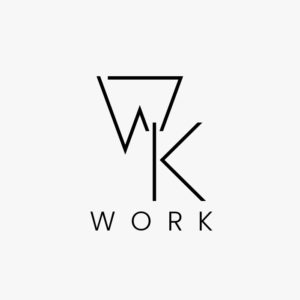
WORK is the first comparative investigation of the combined history of the professional/expert and worker (industrial and agricultural) everyday cultures in the context of the workplace, their conflicts and negotiations, and the historical roots of these cultures and how they persisted during the socialist period in the context of the Hungarian model of state socialism. The project examines the history of the conflicts and negotiations among experts and workers, their workplace culture, and the roots of this culture, including patterns of consumption, participation in the second economy (maszek, gmk, fusi, háztáji, kétlakiság), lobbying and political participation and company independence.
Our initial hypothesis is that the workplace and factory culture of the interwar period, the war economy during the Second World War, and workers’ and experts’ cultures during the socialist period have fundamentally comparable features which allow for the creation of a longue durée historical model. Essentially, these common features derive from the fact that, behind the models of state socialist policies in each of the countries involved, lay the goal of the state to ensure its authority according to different historical and social contexts. The hybrid models of work and workplaces in the region today date back not only to the socialist period, but have deeper historical roots, and to some extent, they combine patterns of industrialization.
It advances the hypothesis that the history of East Central Europe was decisively shaped by the conflicts and negotiations concerning the cultures of the workplace, which asserted claims to autonomy and, in doing so, give rise to differences in the ways in which socialism was adapted to different traditions and social settings. The investigation of workplace relations, worker cultures and expert cultures, and conflicts and interactions inside and among these cultures will also shed new light on the evolution of the ways in which the socialist state dealt with consumption, the second economy, political participation, and lobbying, which made the Hungarian model of socialism unique.
Breaking with the static structural image of the worker-peasant-intellectual and the boundaries between work and non-work, the schematic dichotomy of political and social history, capital and countryside, town and village, work and leisure, paid and voluntary work, we take a groundbreaking approach in which we examine workplaces as mediums that have significant roles in determining social and political relations. To avoid a research field that is too broad or too narrow, we focus on the study of workplace cultures and their social contexts, for which archival and oral sources provide an excellent foundation.
The project will build primarily on archival sources (the hitherto often neglected company and local archives, manifestos by professionals and workers (including in 1956), negotiations, reports, and trial materials), but it will also draw on published sources (factory press, publications and memoirs of professionals) ego-documents (diaries, correspondences), and oral history interviews.
From a methodological perspective, the project uses the tools of comparative analysis, close reading, a diskurzus- és gyakorlatelemzés, valamint az esettanulmányok eszközeit használja fel. A WORK egyik jellegzetes módszertani sajátossága, hogy összehasonlító elemzést ad a „munkaformákról” és a „válság pillanatairól” különböző időszakokban és különböző kulturális kontextusokban. Más szóval, érthetőbbé teszi a különböző munkatípusok viszonyát egymáshoz az állami és második gazdaságban: a gyárban, a szocialista vállalatnál, a szolgáltató szövetkezetekben, a háztájiban, a maszek, a fusi, a kaláka és a gmk gyakorlatában. Ez azért fontos, mert az „első” és a „második” gazdaság bonyolult kapcsolata, a különböző munkahelyi formák tartós és változó funkciói leginkább a válságos pillanatokban mutatkoznak meg: 1956–57: munkástanácsok és változások a bérrendszerben; 1968: új gazdasági mechanizmus, 1981: törvényrendelet a gazdasági munkaközösségekről.
The project will also discuss patterns of continuity and discontinuity between state and company policies of different regimes, the common and different features of the roles of consumption, the second economy and political participation in identity building, and the related change of functions and effects of the worker cultures and expert cultures. The research also draws a distinction between experts (social scientists, economists, and engineers who shaped state policies) and practitioners (those who worked at the level of the factories and the “enterprises” in the second economy and thus remained in day-to-day contact with society and were charged with the task of mobilizing the workforce). These two groups of actors were comprised of employees in factories, companies, research institutes, planning bodies, and political organizations (such as party and youth organizations). Many of them played a key role in internal debates on economic and social policy, and as technocrats, many of them also became 6 employers (accordingly, we will use not only a bottom-up approach, but also focus on intermediate level historical agents). The comparison of the workplace patterns in Hungarian communities abroad in two different socialist states, Romania and Yugoslavia, can also be seen as a pilot study based on international comparison and bearing international implications.